Steven R. Southard's Blog, page 17
May 14, 2023
How “Turned Off” Got Turned On
The new book The Science Fiction Tarot anthology, edited by Brandon Butler, contains my story “Turned Off.”
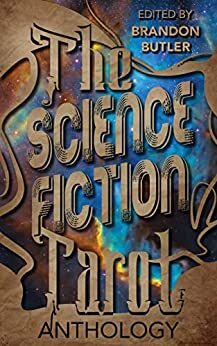
In the anthology, images of science fiction related tarot cards accompany each story. The one for mine, drawn by Marco Marin, looks wonderful.
My story involves two movie prop robots who awaken during a strange electrical storm in Hollywood. I patterned one robot, Automo, after the robot of movies like Forbidden Planet (1956) and The Invisible Boy (1957). The robot Ava of th...
May 8, 2023
Whirlwind Weekend in Des Moines
This past weekend, I had a wonderful time at DemiCon, the science fiction convention in Des Moines, Iowa. My first time at that con, and I met interesting people and engaged in fun discussions.
After driving for eleven hours to get there, I made it in time for my first panel on Friday evening. The topic was ‘Artificial Intelligence Meets Science Fiction.’ Jan Gephardt, David Pedersen, and I discussed the future of AI as it affects writing. What will happen when AI writes better fiction than h...
April 30, 2023
Iowa Boy Returns – DemiCon 2023
This coming weekend, May 5-7, I plan to speak at DemiCon, the science fiction convention in Des Moines, Iowa. I grew up in Iowa, so it will serve as a homecoming of sorts.
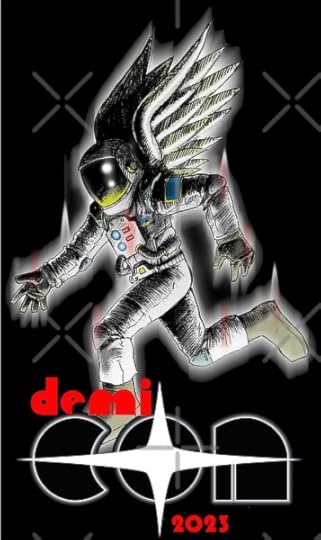
Here’s my schedule for that weekend:
Friday
6 pm AI Meets SF (with David Pedersen and Jan Gephardt)
Saturday
10 am Iowa in SF (with Adam Whitlatch and Lettie Prell)
12 pm Can Writers Benefit from Being Editors? (with Adam Whitlatch)
2 pm Steve Southard...
April 23, 2023
Great Time at PenguiCon 2023
Attendees at the science fiction convention PenguiCon enjoyed a great treat yesterday. They got to go to an informative and fun panel about Jules Verne.
Scifi fan and bookseller Jeff Beeler led the discussion and asked questions designed to give the audience a good feel for the famous French author. Unlike most readers, the first Verne novel Jeff read was the obscure 1888 novel Two Years’ Vacation.
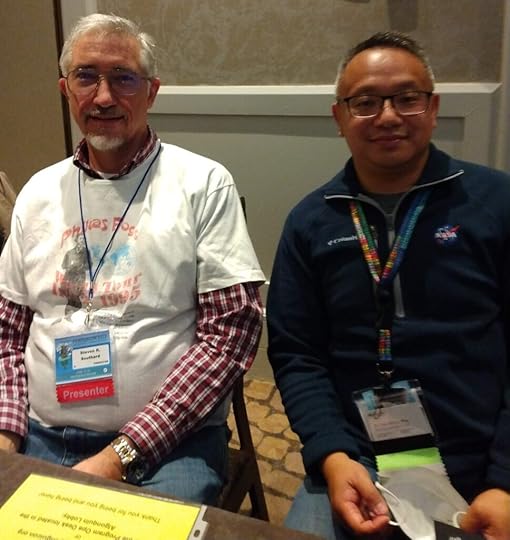
The con’s Guest of Honor, Eric Choi (pictured with me) explained how he came to write hi...
April 16, 2023
Upcoming Events for Poseidon’s Scribe
Hectic times for Poseidon’s Scribe. Last week I mentioned I’ll be speaking at PenguiCon. Today I’ve got two more events to tell you about.

First, here’s an update on PenguiCon, the scifi convention at the Westin Hotel in Southfield, Michigan. For the panel “Extraordinary Visions: the enduring legacy of Jules Verne” (11:00 am on Saturday, April 22), there’s been a person added to the panel. In addition to Eric Choi (the con’s Guest of Honor), Jeff Beeler, JD DeLuzio, and me, the panel will...
April 9, 2023
Waddling to Penguicon ‘23
If you find yourself in the Detroit area later this month, consider going to Penguicon. I’ll be there.

A science fiction convention, Penguicon takes place in Southfield, Michigan at the Westin hotel. This year, they’ve chosen author Eric Choi as their Guest of Honor. His short story “Raise the Nautilus” appears in two recent anthologies—Extraordinary Visions: Stories Inspired by Jules Verne and 20,000 Leagues Remembered.
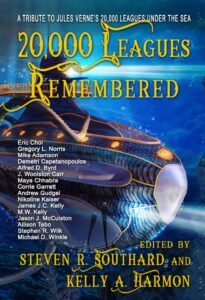

Penguicon features a panel called “Extraordinary Visions: t...
April 2, 2023
My Newest Book — Rebel Spirit
Ever heard of CSS Hunley? A hand-cranked submarine from the U.S. Civil War, it accomplished the first successful submarine attack in history.
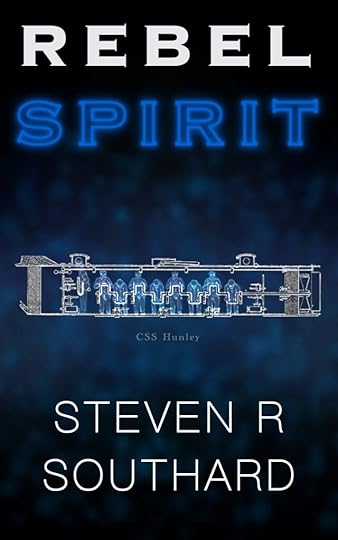
I’ve written a fictional story set aboard that sub. One of my few ghost stories, Rebel Spirit follows the experiences of a man nicknamed Scowler, a member of the sub’s first crew.
In 1864, Northern warships blockaded Charleston harbor, permitting no waterborne trade. In desperation, the South tried an unprecedented attack from underwater, by subma...
March 18, 2023
Join the Laser Pistol Gang
I plead guilty…to violating many laws of science in my writing. But I’m not alone. I’m in good company with many other science fiction writers. Call us the Laser Pistol Gang.

Authors of so-called ‘hard SF’ should adhere to known scientific principles and knowledge, but aren’t above bending or breaking the laws of physics for the sake of a good story.
Mary Shelley really stretched biological science in Frankenstein when her fictional scientist animated a human from dead tissue. Jules Ver...
March 12, 2023
Your 3 Distinguishing Words
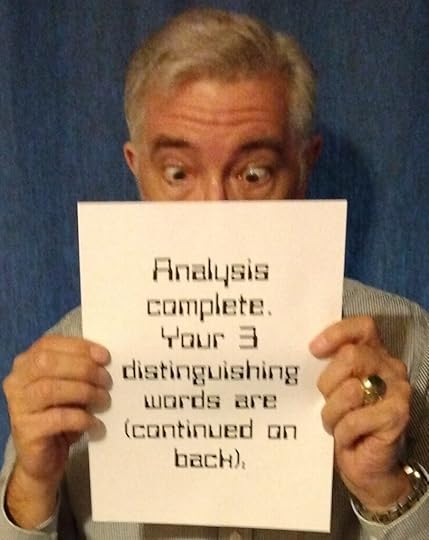
Using computers, you can measure peoples’ writing. You can compare recent bestsellers to books that didn’t sell well.
One man with interests in numerical analysis and literature tried just that. Ben Blatt wrote Nabokov’s Favorite Word Is Mauve: What the Numbers Reveal About the Classics, Bestsellers, and Our Own Writing. Megan Gambino interviewed him in this post.
Blatt analyzed books by many bestselling authors of the 19th and 20th Centuries, looking for patterns of word usage. He...
March 5, 2023
Want to be a Character in Your Own Book?
When authors write themselves in as characters in their fiction, we call it ‘self-insertion.’ Why and when might you try this literary technique?
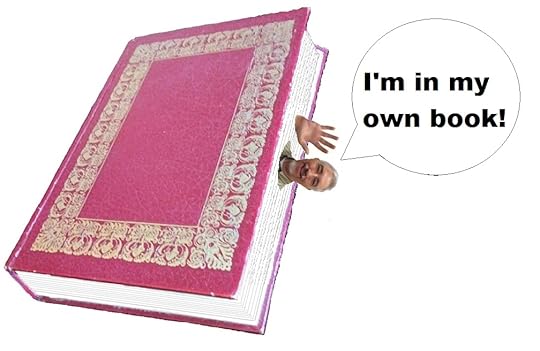
The list of authors who’ve done this includes names you’ve heard of— Dante Alighieri, Rudyard Kipling, Somerset Maugham, Kurt Vonnegut, Stan Lee, Clive Cussler, Stephen King, and Daniel Handler (writing as Lemony Snicket). Pretty good company.
The technique varies. In Dante’s Divine Comedy, Dante made himself the main character. He used self-i...



